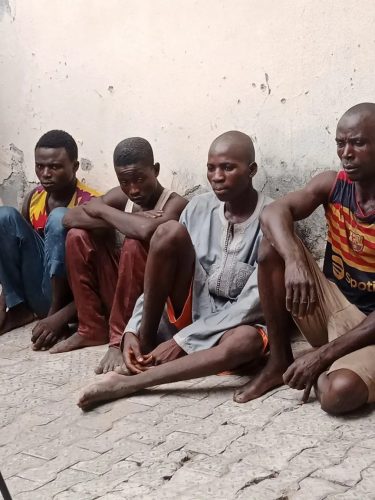The Labour Party (LP) presidential candidate in the 2023 election, Peter Obi, has tackled the President Bola Tinubu’s administration over the new cybersecurity levy directive issued by the Central Bank of Nigeria (CBN).
Nigerians were busy trying to battle the lingering hardship rocking the country when the CBN issued a new directive to all financial institutions, including commercial, merchant, non-interest banks, payment service banks, and mobile money operators.

Via the new directive, the CBN mandated the implementation of a 0.5% cybersecurity levy on all electronic transactions.
This move is in line with the provisions of the recently amended Cybercrime (Prohibition, Prevention, etc.) Act 2024.
The directive was detailed in a circular.
Cybersecurity Levy
That directive instructs that the levy must be applied at the point of electronic transfer origination.
The deducted amount is expected to be reflected in the customer’s account as a “Cybersecurity Levy.”
This latest development has raised concerns from Nigerians, and Peter Obi has chosen not to be silence about it.
Obi spoke via a statement on his X handle on Wednesday.
According to him, introducing the Cybersecurity Levy at a time when Nigerians are faced with severe economic distress shows the FG is more interested in milking a dying economy instead of nurturing it to recovery and growth.
Economic Distress
Peter Obi noted that the Cybersecurity Levy also neglects the Government’s avowed commitment to reducing taxes and streamlining the tax system.
To him, policies such as the Cybersecurity Levy impoverish citizens and make the country’s economic environment less competitive.
In his words: “The introduction of yet another tax, in the form of Cybersecurity Levy, on Nigerians who are already suffering severe economic distress is further proof that the government is more interested in milking a dying economy instead of nurturing it to recovery and growth.
“This does not only amount to multiple taxation on banking transactions, which are already subject to various other taxes including stamp duties.
It negates the Government’s avowed commitment to reduce the number of taxes and streamline the tax system.
Trading Capital
“The imposition of a Cybersecurity Levy on bank transactions is particularly sad given that the tax is on the trading capital of businesses and not on their profit.
Hence, this will further erode whatever is left of their remaining capital, after the impact of the Naira devaluation and high inflation rate.
It is inconceivable to expect the suffering citizens of Nigeria to separately fund all activities of the government.”
Also Read: CBN CyberSecurity Levy: 16 Bank Transactions Not Affected
“Policies such as this not only impoverish the citizens but make the country’s economic environment less competitive.
The Questions
“At a time when the government should be reducing taxes to curb inflation, the government is instead introducing new taxes.
And when did the office of the NSA become a revenue collecting centre?
And why should that purely national security office receive returns on a specific tax as stated in the new cybersecurity law?”

